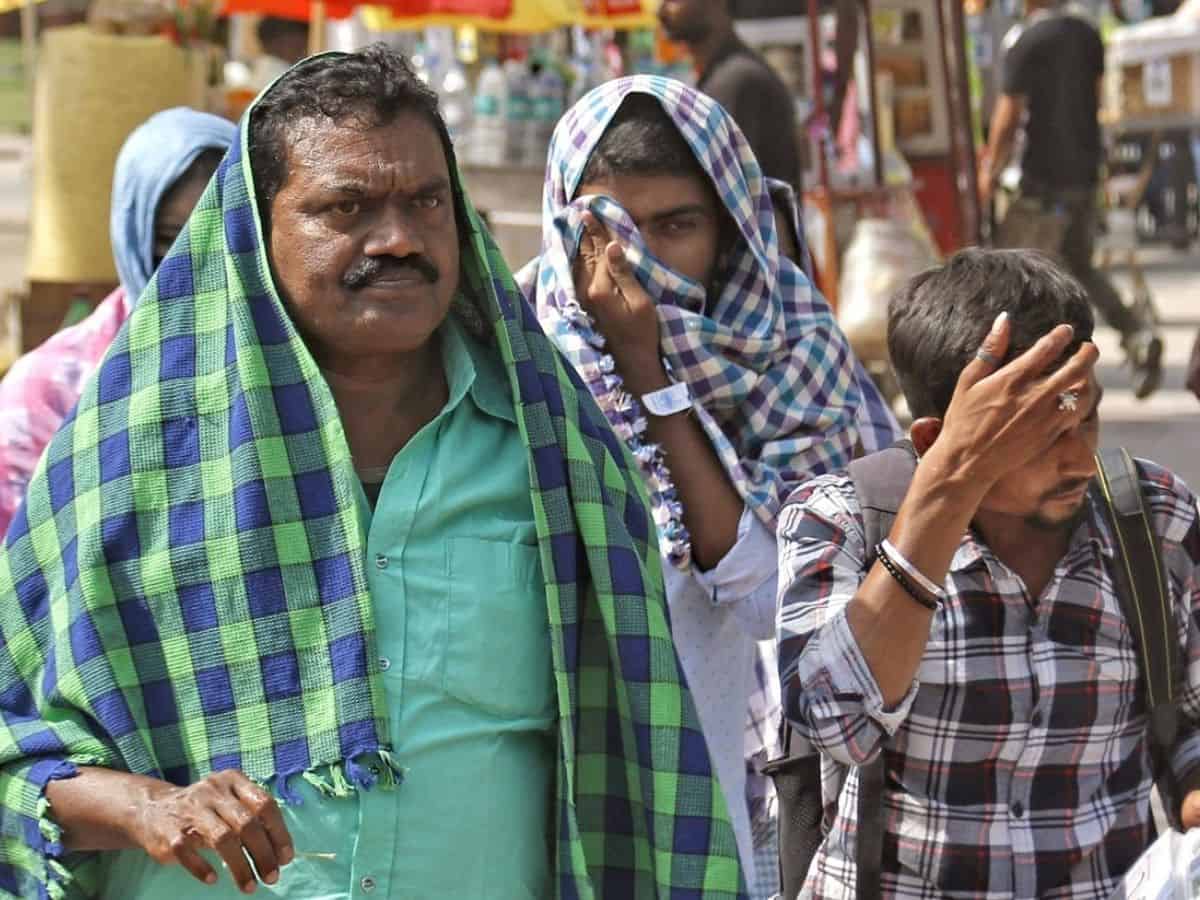
Hyderabad: The India Meteorological Department (IMD) has issued a severe heat wave alert for parts of Telangana with maximum temperatures likely to touch 44 degrees Celsius over the next two days, an official said on Sunday.
The Hyderabad Meteorological Centre has issued orange (severe heatwave) alert for few pockets in Telangana districts of Adilabad, Komaram Bheem Asifabad, Mancherial, Nirmal, Jagityal, Karimnagar, Peddapally, Jayashankar Bhupalapally, Mulugu, Bhadradri Kothagudem, Khammam, Nalgonda, Suryapet, Mahabubabad, Warangal and Hanamkonda.
It said there was an increased likelihood of heat illness symptoms in people who are either exposed to the sun for a prolonged period or doing heavy work.
There will be high health concerns for vulnerable people like infants, elders and people with chronic diseases.
The Met officials advised people to avoid heat exposure, keep cool and avoid dehydration.
“Drink sufficient water even if you are not thirsty. Use ORS, homemade drinks like lassi, torani (rice water), lemon water, buttermilk etc. to keep yourself hydrated,” an official said.
On Sunday, severe heatwave conditions prevailed at isolated pockets in Khammam district and heatwave conditions prevailed at isolated pockets in Adilabad, Hanumakonda, Nalgonda, Bhadradri Kothagudem and Peddapally districts.
According to Telangana State Development Planning Society, Eesala Thakkalapalli in Peddapalli was the hottest place in the state with mercury rising to 44.8 degrees Celsius.
Jamnuga in Kumaram Bheem Asifabad district and Palthem in Peddapally district recorded a maximum temperature of 44.5 degrees Celsius.
For June 20, the Met Office has issued a yellow alert (heatwave) for parts of the state. Maximum temperatures are very likely to be around 40-43 degree Celsius at isolated pockets in the districts Adilabad, Komaram Bheem Asifabad, Mancherial, Nirmal, Nizamabad, Bhadradri Kothagudem, Khammam, Nalgonda and Suryapet.
Heat is expected to be tolerable for the general public but there will be moderate health concerns for vulnerable people like infants, elderly and people with chronic diseases, an official said.
